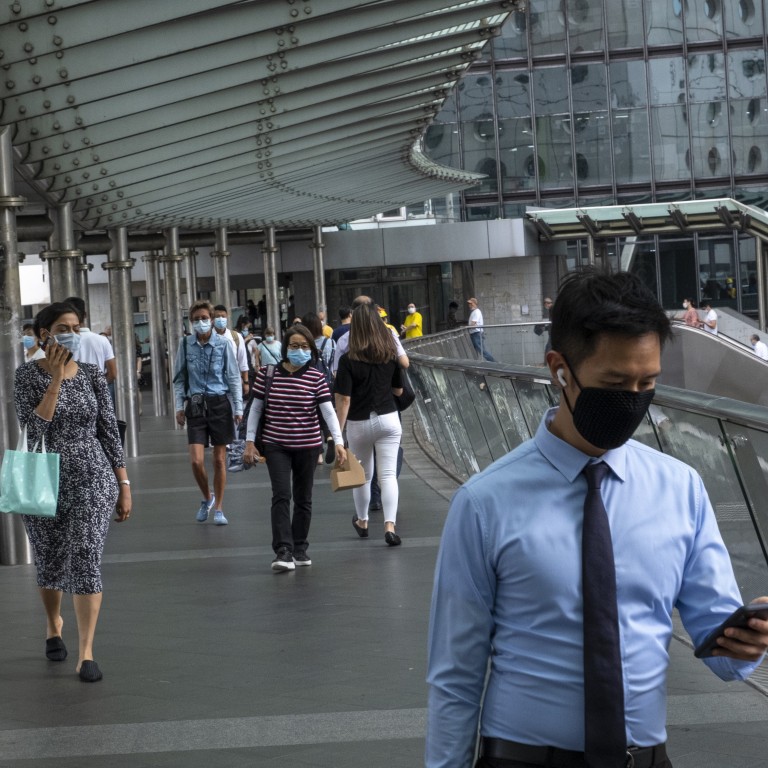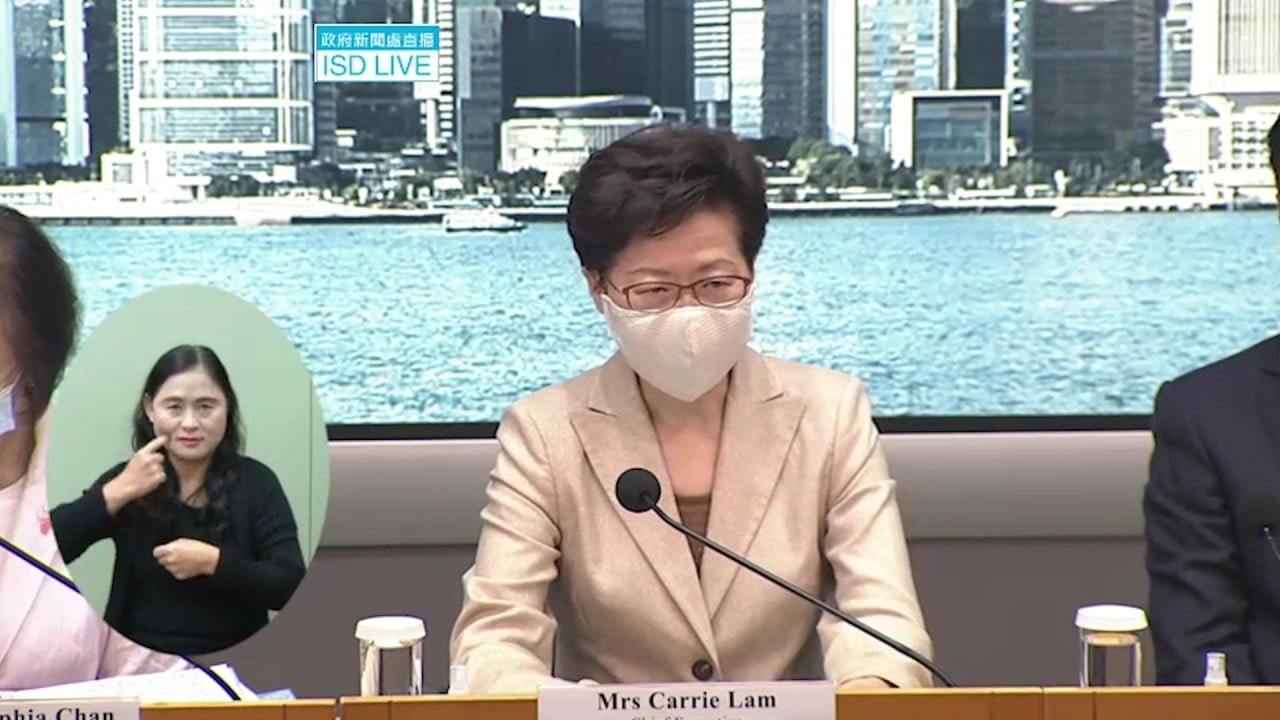
Coronavirus: Hong Kong unemployment rate rises to 6.2 per cent, highest in more than 15 years
- Jobless rate has climbed for nine straight months as coronavirus pandemic drags the economy deeper into recession following last year’s social unrest
- Labour chief Law Chi-kwong warns job situation continued to deteriorate in second quarter and recovery will depend on handling of global health crisis

04:58
Hong Kong tightens social-distancing rules as Covid-19 cases soar
It is now at its highest since January 2005, when the rate was 6.4 per cent.
Separately, about 18,600 unemployed people received help under the Comprehensive Social Security Assistance Scheme, an increase of 0.9 per cent compared with the previous month, according to data revealed on Monday.
Hong Kong reports 73 new Covid-19 cases, several tied to existing clusters
New applications involving unemployment cases seeking social security were still about three times higher than a year ago, even though they fell 45.3 per cent to 1,823 in June from the April peak of 3,957.
Secretary for Labour and Welfare Law Chi-kwong stressed that the labour market continued to deteriorate for the second quarter of the year as a whole and its recovery would depend on how the global health crisis was handled.
About 10,300 more people were out of work during the period, with the number rising to 240,700. Some 7,800 more people were underemployed, with the underemployment rate increasing 0.2 percentage points to 3.7 per cent, the highest in 17 years, in the April to June period.
Analysed by sector, the unemployment rate in retail, tourism and food services edged up to 10.7 per cent between April and June, the highest since the economic fallout from the severe acute respiratory syndrome (Sars) epidemic some 17 years ago.
The unemployment rate for the food and beverage service sector hit 14.7 per cent, close to its post-Sars high.
The local economy was dealt another blow when the coronavirus broke out in Hong Kong in late January. In the first quarter alone, Hong Kong’s economy suffered its worst decline on record, contracting 8.9 per cent year on year.
A third wave of mostly locally transmitted coronavirus infections, which broke out in early July, could also hit the city’s economic recovery.
“The still serious [pandemic] situations in certain parts of the world, and renewed surge in local cases lately serve as a timely reminder that the economic outlook is still subject to huge uncertainties,” Law said.
Hong Kong’s exporters brace for impact as US strips city of trade privileges
As part of the government’s Employment Support Scheme, a total of HK$34.2 billion (US$4.4 billion) in wage subsidies was being dispersed in six batches between June and mid-July, covering nearly 121,500 employers and 1.47 million workers.
Hundreds of businesses, ranging from listed companies to small firms across the tourism, catering, retail, health care and other industries have benefited from the scheme, which helps employers pay 50 per cent of employees’ monthly salaries at a cap of HK$9,000 (US$1,160) per worker for six months.
Carol Ng Man-yee, chairwoman of the Confederation of Trade Unions, said the rise in the unemployment rate showed the government’s wage subsidy scheme had not worked.
“I believe that the unemployment rate will continue to rise,” said Ng, citing the worsening Covid-19 outbreak that had hammered the economy.
She urged the government to introduce an unemployment allowance scheme under which each jobless worker could receive up to HK$16,000 a month for six months.
Legislator Michael Luk Chung-hung, of the Federation of Trade Unions, echoed similar sentiments, stressing that the government should roll out extra support to sectors ravaged by the pandemic, including aviation, tourism, catering and retail.
Luk also suggested the government offer short-term posts, such as data analyst, courier and administrative health worker jobs, that could help in the fight against the coronavirus.
The balance of risks to Hong Kong’s long-term economic prospects is tilted to the downside
Meanwhile, S&P Global Ratings warned that Hong Kong’s competitive advantage was eroding, which would potentially cause economic growth to fall to 1.1 per cent in 2030 from 2.7 per cent in 2018.
US Autonomy Act opens ‘Pandora’s box’ for Hong Kong dollar peg
“The balance of risks to Hong Kong’s long-term economic prospects is tilted to the downside. Prominent among them is a further rapid deterioration in the US-China relationship resulting in a decoupling of the US dollar and Chinese renminbi financial systems,” said S&P Global Ratings Asia-Pacific chief economist Shaun Roache.
“A second risk is an accelerated financial opening of the mainland that would lessen Hong Kong’s role as a conduit.”

